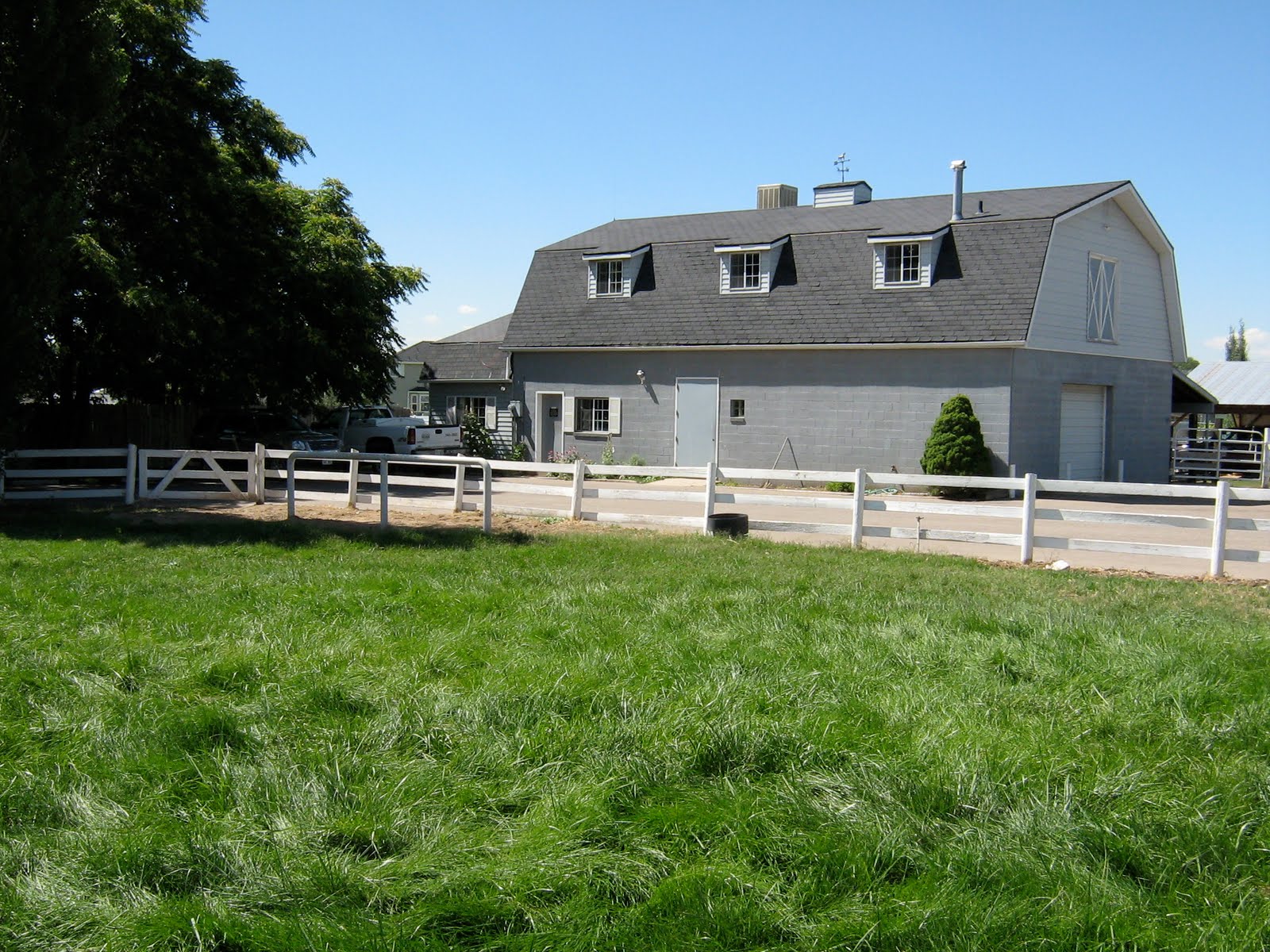The cool temperatures of fall are a great thing. But over the years there is always a pattern that develops during the fall in the equine veterinary world- more colic. I see more cases of colic in the fall than at any other time of year. Rarely do these cases become severe enough to need surgery, but some tips to help avoid the problem might be a good idea.
You've probably noticed that as the cooler temperatures come on, our horses drink less water. Drinking less water can contribute to dehydration and impaction colic. This would be similar to being "constipated". The first signs you see are a tired attitude, off feed, and then more frequent laying down than normal. If treated at this stage, the outcome is almost always successful. Waiting, can be the worst thing to do. Even giving a dose of Banamine can be a bad idea because it can reduce the pain or discomfort associated with impaction, but it does nothing for the real cause of the pain. Getting water and/or oil down the horse with a nasogastric tube is the most important thing to do. Treating a mild colic has a much higher success rate than waiting and then treating a serious life threatening colic.
I have heard of people trying to give their horse oil by squirting it into their mouth. Even some have tried to use vegetable oil, thinking it is the same as mineral oil. WRONG!! This is a real bad idea because trying to force water/oil/or whatever, down a horses throat can get you a very serious case of Aspiration pneumonia by getting the fluids into the horses lungs by mistake. The ONLY way to get sufficient water or oil in to your horse, is by the nasogastric tube or IV fluids. (This is where we say, "DO NOT TRY THIS AT HOME")
One other tip. Salt drives thirst. So adding some form of salt into their diet can stimulate thirst and increase water intake. The best way to do this is to give two cups of GRO RITE daily in a small amount of grain. This way they get the benefits of a vitamin mineral supplement, and all of the electrolytes (these would be very salty in nature). And always have a WHITE salt block available for your horses.
Other routine things to get ready for winter are dental exams/floating, and flu rhino vaccinations. A horse with poor dentition will not be able to handle the forage as well, and this can lead to weight loss, or even colic.
As the nights get cooler, and the days are still fairly warm, this creates a temperature disparity that creates a fair bit of stress on our horses. Upper respiratory infections become common because of these conditions. The best preventive is vaccination against the influenza and rhinopneumonitis viruses. The "Rhino" virus, is the virus that we all heard about this past summer. In talking with Veterinarians across the country, it is the general opinion that two specific vaccines are more effective in protecting against these viruses. Calvenza, flu vaccine, and Rhinomune, rhinopneumonitis vaccine are the two that I recommend.
Therefore, our to do list this fall for our horses should be;
Check teeth, correct any abnormalities before winter, Have horses at optimum body condition before the onset of winter
Vaccinate against Flu, Rhino with Calvenza and Rhinomune
Feed Gro Rite, two cups daily, for vitamin/mineral supplementation, and increased water intake
Deworm with Ivermectin after the first hard freeze
Have horses on a regular schedule with your farrier
Monday, September 19, 2011
Subscribe to:
Posts (Atom)



